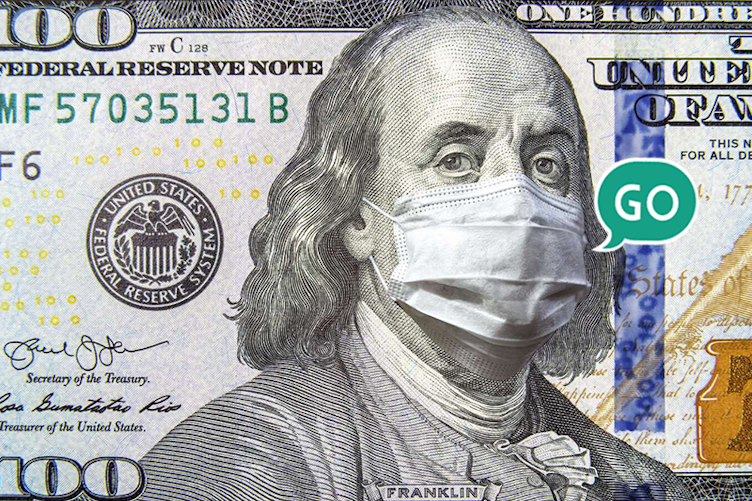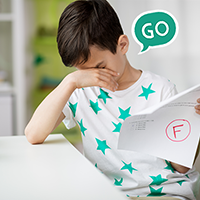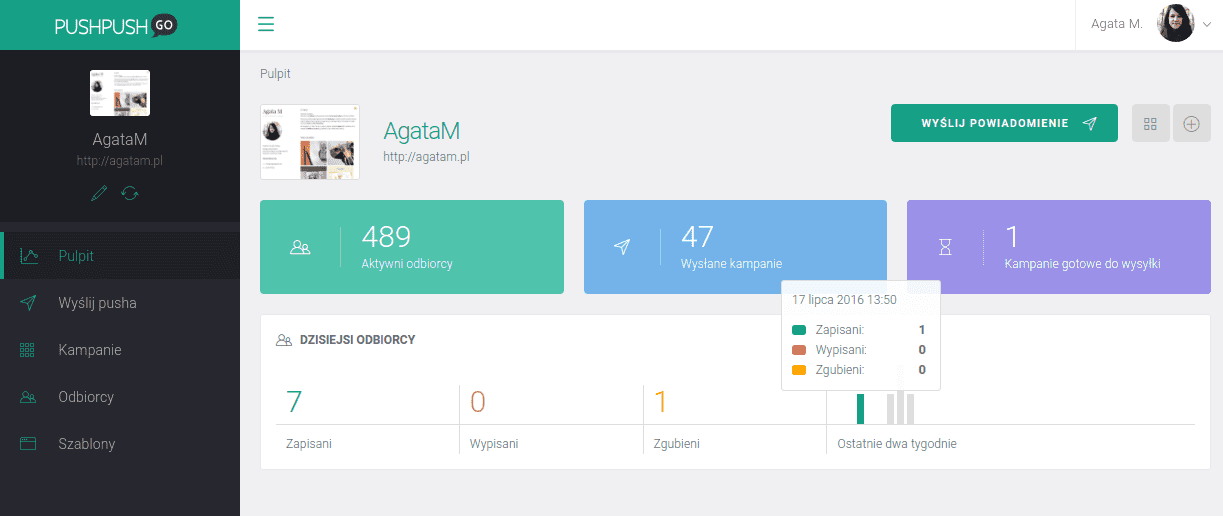As the latest report from Ipsos shows, the coronavirus pandemic has changed consumer purchasing behaviors, and marketers need to tailor their strategies for the coming months.
However, as always happens during a global crisis, the current situation raises a lot of uncertainty among entrepreneurs.
Will customers buy anything now or advertising budgets be wasted? Is it time to invest funds or save everything if the situation worsens? These are just a few of the questions that we’re all asking ourselves.
As a company struggling with similar problems and also serving clients from several continents, we have gathered our experiences to answer why, in our opinion, it is worth promoting your company during the coronavirus pandemic. I hope that the following statistics and our observations will help you make this crucial decision in this period.
Reason 1: We don’t know when the pandemic is going to end
Right now, we’re basing our knowledge about when the coronavirus pandemic might end on mathematical models using experience from other countries and observations from previous outbreaks, including Spanish flu or SARS. It is also difficult to forecast what further restrictions could be imposed on trade in our country (e.g. courier companies have ceased to operate in Peru for some time, while in many countries no restrictions have been introduced at all).
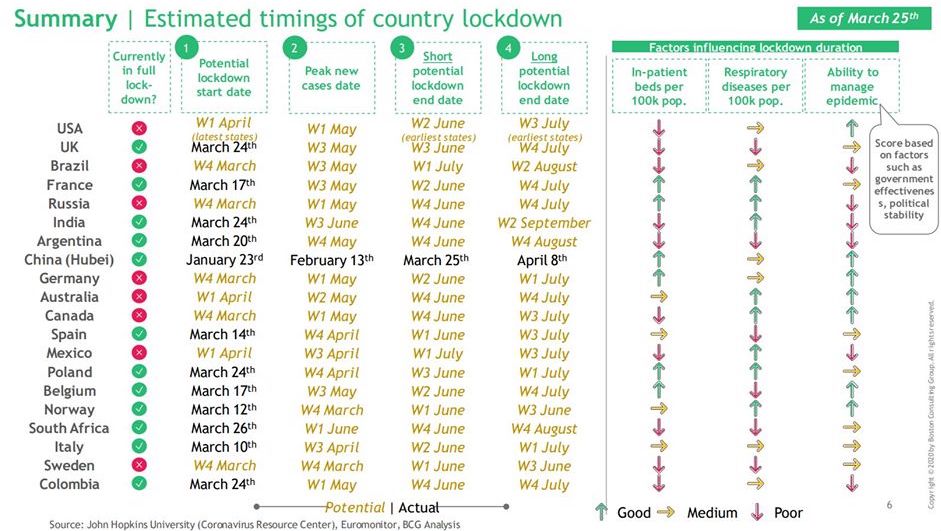 Source: John Hopkins University (Coronavirus Resource Center)
Source: John Hopkins University (Coronavirus Resource Center)
The fact that nobody is able to accurately determine when the pandemic will end and what global effects it will have means that we are all in a situation of great uncertainty. What does it all mean?
As company owners and managers, we cannot afford to wait passively for further developments and, consequently, a significant deterioration in financial results.
As a company, we have made the following assumptions:
1. We will gain the most assuming the worst-case scenario, i.e. the pandemic will last six months or longer. So we have to adapt quickly to new conditions:
- Even before the quarantine began, we started working remotely and minimizing the chances that someone from our team would become ill
- We have kept previous productivity (including sales activities) and operational continuity.
2. We will only make short-term decisions and operate based on our existing strategy of MVP (Minimum Viable Product). So we decided to focus on easy and inexpensive strategies to implement, the results of which we can quickly check and, if necessary, adapt as needed:
- We checked the most effective way to help existing customers so that their sales results remain as high as possible while maintaining contact with them
- We divided potential clients into small groups by industry and country, so as to identify areas where we can operate most effectively and then direct all sales forces there
3. The first weeks will be critical and marketing activities will be paralyzed, but over time, despite the ongoing restrictions, we will all adapt to new conditions and the same will apply to our current and potential new customers, so it makes no sense to stop our sales activities.
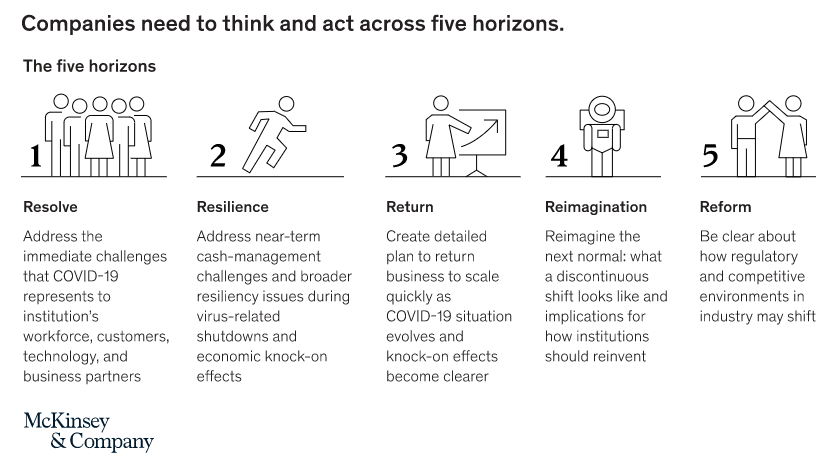
Source: McKinsey & Company, COVID-19: Implications for business
Reason 2: Purchasing behavior may change, but customers will still buy products and consume content
The companies most exposed to financial losses are those whose main source of revenue depends on the operation of facilities, like shopping centers. This is clearly seen in the example of Macy's, Gap and Kohl's.
Right now, 250,000 of the chain’s stores are closed, as restrictions apply in many countries in which company operates. Well known retailers are struggling to survive during virus crisis worse than the 2008 financial crash.
However, there are factors that indicate that customer purchasing activity has not so much decreased but changed its direction and place as it slowly moves to e-commerce. This hypothesis is confirmed by a report by McKinsey & Company, COVID-19: Implications for business, which clearly shows that, for example, isolated Chinese quickly began to buy all types of products online.
Last month alone, interest in online shopping on Google increased by over 20 times. This is not surprising, firstly due to the lack of stationary availability of certain products, but also the fear of being infected or the inconvenience of queues in traditional stores.
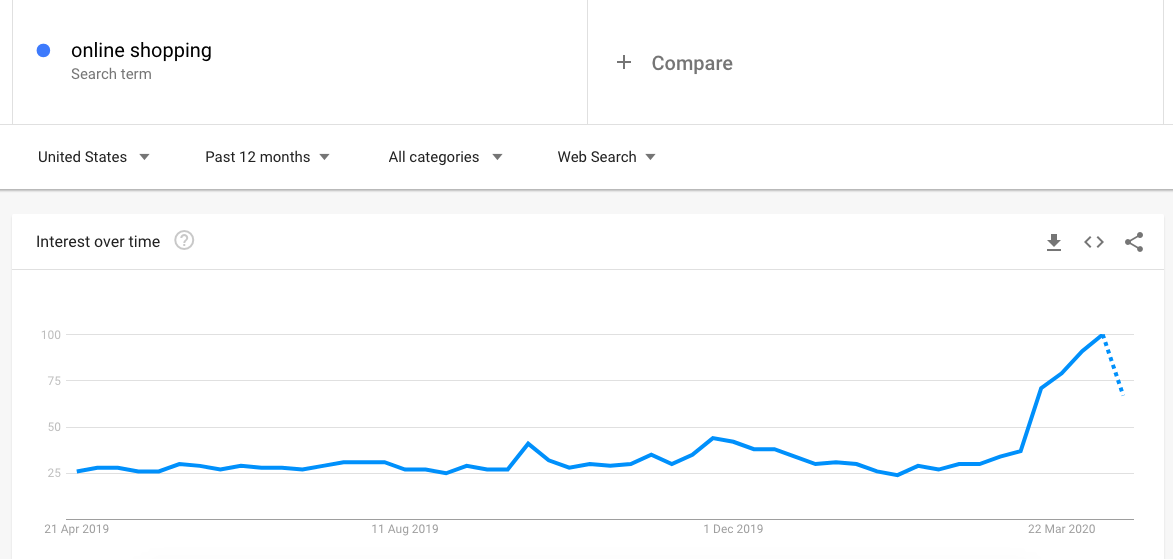 Source: Google Trends
Source: Google Trends
Companies that now skillfully move their sales activity to ecommerce will not only find themselves better off financially in the current difficult situation, but also can count on the habits and loyalty of customers when we recover economically after the crisis.
On the other hand, on the pessimistic side, we may have to fear a significant decrease in the purchasing power of customers who lose their jobs or will be more economical, so it is worth maximizing profits as long as possible.
Increased interest in promotional channels of brands in e-commerce
It’s interesting to note that, along with the growing popularity of online shopping, we can also observe an increase in the number of signups for web push notifications. For example, at one of our Greek customers in the home electronics and appliances sector, the last such large jump in the number of records for notifications took place around Black Friday and Cyber Monday.

Source: PushPushGo, indicator of subscription for web push notifications at one of the customers from the RTV / AGD segment (green line)
Such interest can be indirectly interpreted as a future shopping intentions.
We can see similar upward dynamics when it comes to the rate of clicks on notifications from most of our clients. Therefore, we forecast that with the increase in online shopping activity, the role of channels like web push notifications will increase, which will attract the customer's attention and provide him with access to the best price offers and valuable content.
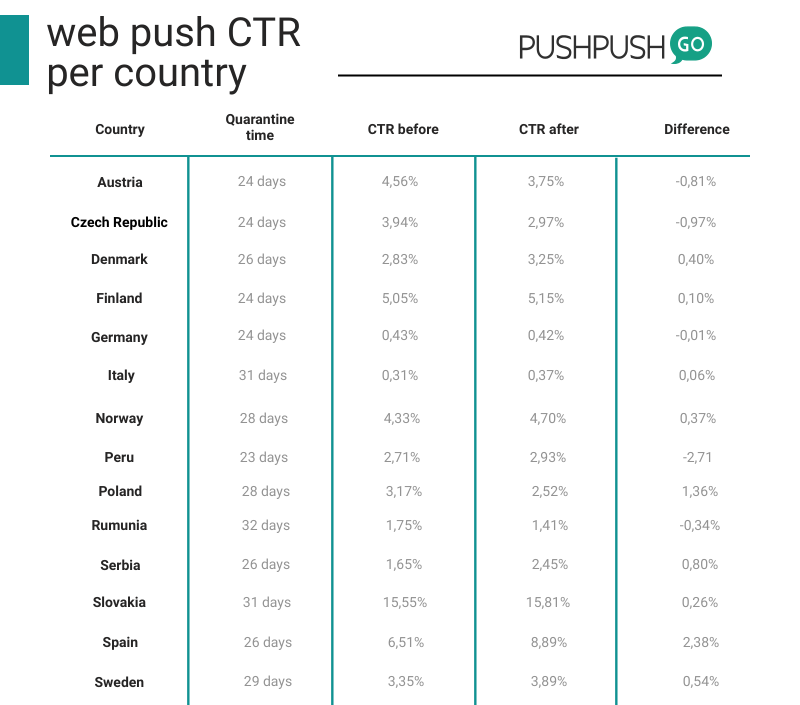 Source: statistics of sent PushPushGo campaigns
Source: statistics of sent PushPushGo campaigns
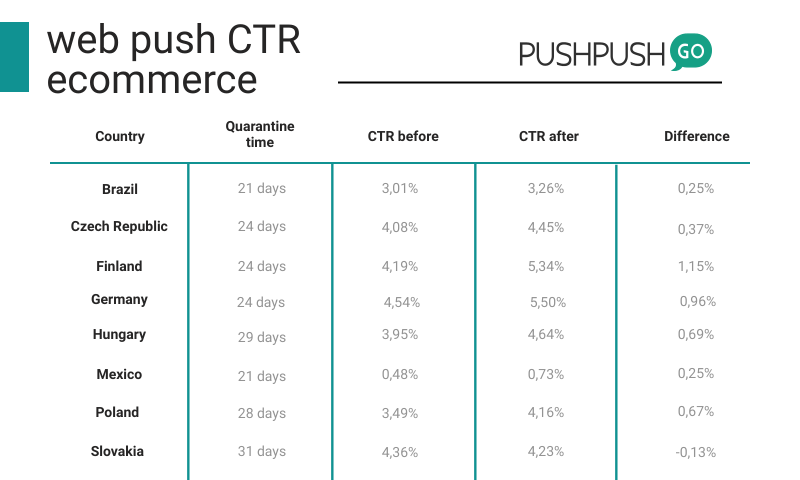 Source: statistics of sent PushPushGo campaigns
Source: statistics of sent PushPushGo campaigns
Increased interest in promotional channels of online publishers and paid content
While the situation for “paper” publishers may be a bit more difficult, the pandemic has revived the activity of online readers. Why?
Forced quarantine has changed our daily behavior in many countries. With the increase in the amount of time not spent on activities outside the home, interest in content available on the web, including paid content, increases.
Quarantine seems like a great time for web content publishers. The situation is similar in the case of VOD services. In Italy and Spain, for example, first-time installs of Netflix’s app were up 57% and 34% respectively.
We also see a similar relationship when it comes to subscribers interest in web push notifications. Most of our clients in the publishing sector have seen an increase in their CTR rates since the introduction of the quarantine.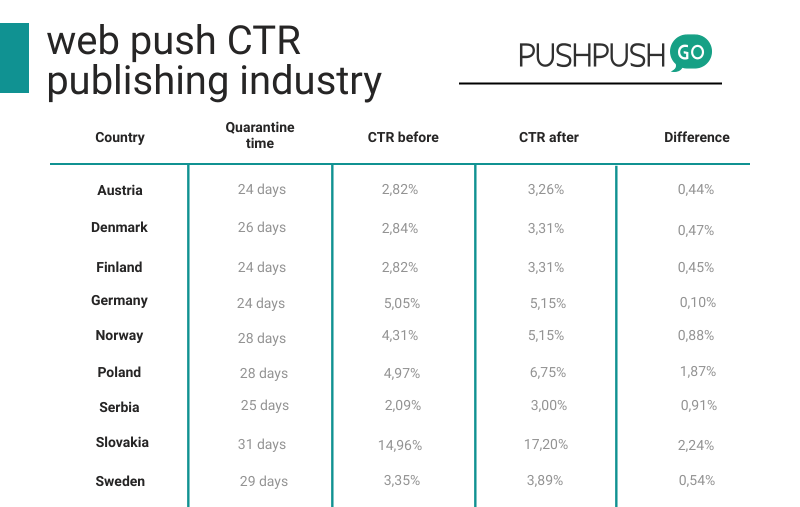 Source: statistics of sent PushPushGo campaigns
Source: statistics of sent PushPushGo campaigns
Reason 3: Now’s a good time for projects and campaigns that you didn’t have time for before
Of course, not all companies are in the same position as online publishers and still able to maintain high expenditures on marketing activities. It is understandable that when a company's business continuity is at risk, marketing is one of the easiest costs to cut.
However, there are many low-cost actions that can be taken during a pandemic to the benefit of the company, and now is the time for them. It is also important that the crisis will end one day and the effects of the marketing efforts will remain.
Think about, for example, guest posts exchanged between blogs on similar topics for free. Each link obtained from a strong domain has a positive impact on website SEO and will not require a large investment.
It's also a good time for overdue social media analytics and content creation. It is worth noting that, e.g. on Instagram, organic reach is still so large that promotion in this channel does not require support by sponsored posts.
If the nature of your business allows it, an interesting idea is also selling vouchers for future services. Certainly there will be customers who will want to support your company and, for example, buy a voucher to redeem after the quarantine has ended.
Summary
To sum up in a few sentences, I strongly agree that as long as the financial situation of the company allows, it is not worth stopping marketing activities during a pandemic.
As the statistics show, the demand for many services and products has not decreased and by not responding to it, we simply leave room for the competition. Of course, a lot of shopping behavior will change, but it all depends on how long the quarantine will last and what restrictions are imposed on us.
Together with the PushPushGo team, we are keeping our fingers crossed for all entrepreneurs who are currently facing the challenge posed by the coronavirus. Good luck!


